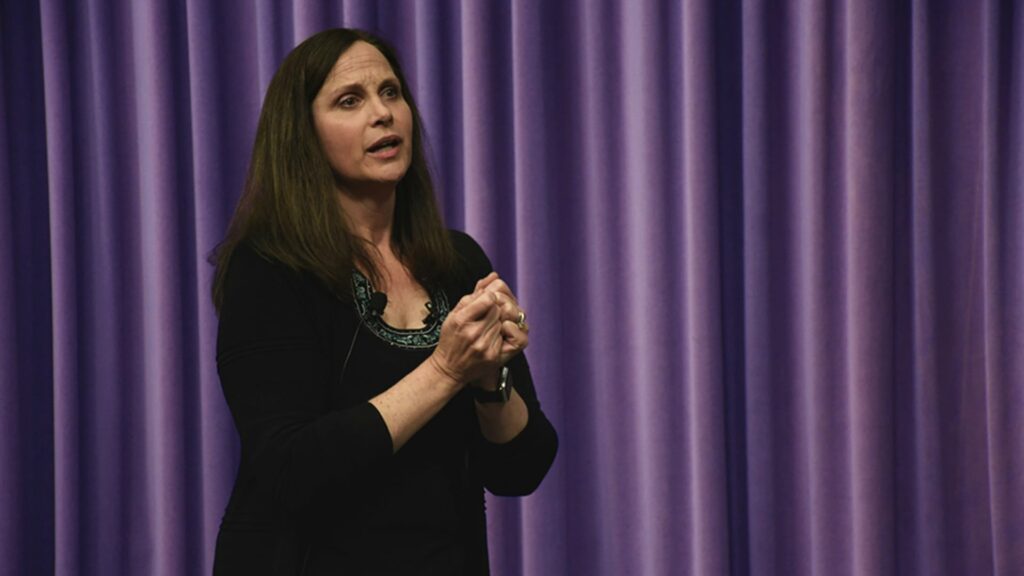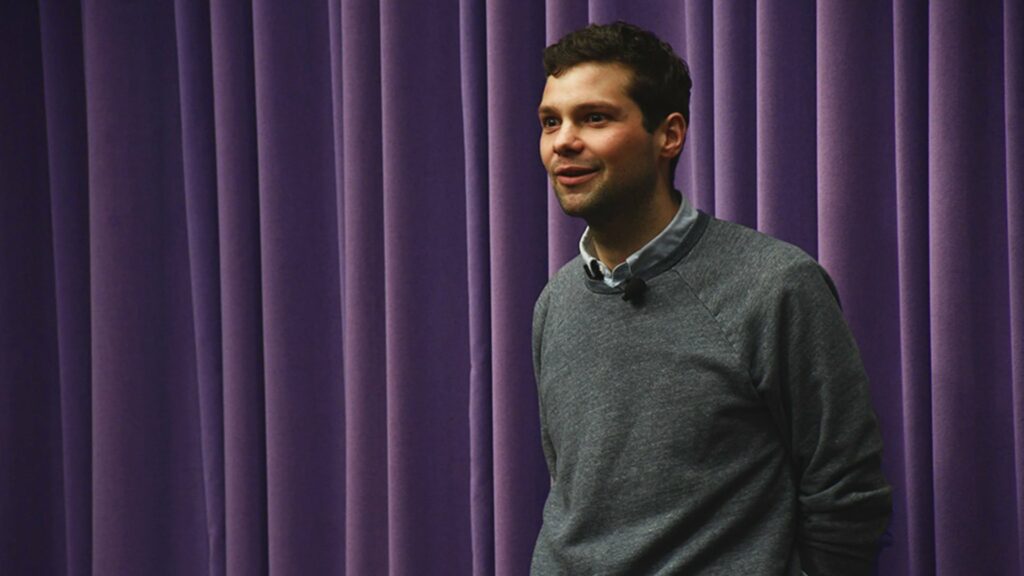Think back to when you were in high school. How did you do your hair? How did you dress? People generally develop a sense of personal fashion over the ensuing years into adulthood, after a few flings with different styles — and hopefully, some honest feedback from friends and family.
But Susan Koger, co-founder of the independent online retailer of women’s fashion known as ModCloth, says it’s perfectly “OK to look back and cringe.” She wasn’t talking about day-glow tops and friendship bracelets, though. She was speaking at the Entrepreneurial Thought Leaders (ETL) Seminar series, sharing advice on pursuing one’s passion, with students on the cusp of launching their own careers.
Her point: Your first attempt at anything new will likely be crude, and so you should give yourself the permission to just do it. If you stick with it and get better, yes, you will probably look back years later and wince. But next to no one crushes it the first time, anyway.
True, the stakes may seem higher if you’re an entrepreneur debuting your first rev to the world. But Koger, ModCloth’s chief creative officer, insists that getting started is better than waiting till it’s perfect.
Admitting to ourselves that we are bound to err is humbling. But in the business world, where showing confidence and competence are the norm, having humility may be what gives the entrepreneur an edge.
William Marshall, co-founder and CEO of startup satellite maker PlanetLabs, also had some wise words for those interested in entrepreneurship at another recent ETL talk. Actually, he cautioned students at Stanford — all deeply immersed in the Silicon Valley vibe — against “defaulting” to a startup the next time they have an idea that seems to have business potential.
Another non-intuitive bit of advice Marshall shared was to not get an M.B.A. Reflecting on his own career, the former NASA scientist said some of the best physicists he’s known didn’t study physics. “The same is true in business: The best business people didn’t study business,” Marshall says.
But his final bit of advice, in the video below, was to have humility. Rather than promise everyone that you’re going to create a great product, build it first and then show people how amazing it is. Marshall says they will be much more appreciative if you take that approach.
In that clip, Marshall briefly mentions hiring people smarter than you among his tips for future founders. Heidi Roizen, however, shares that same advice, but in much blunter terms. “My goal truly is to be the dumbest person in the room,” Roizen said at her ETL talk last year, titled “Adventures in Entrepreneurship.”
Roizen has spent her life immersed in the Silicon Valley ecosystem, as an entrepreneur, corporate executive, venture capitalist, educator and board member for companies public and private. She is currently is the operations partner at the venture capital firm DFJ and lectures on entrepreneurship in Stanford’s Department of Management Science & Engineering.
In short, she knows what she’s talking about.







